25 Jahre Little Star — Jubiläumsangebot: 25% auf die ersten 5 Monate!
25 Jahre Little Star — Jubiläumsangebot: 25% auf die ersten 5 Monate!

Timing: 6:00am-2:00pm
.avif)
.avif)
When implementing our Early Years Curriculum EYC©, the following building blocks serve as our foundation:
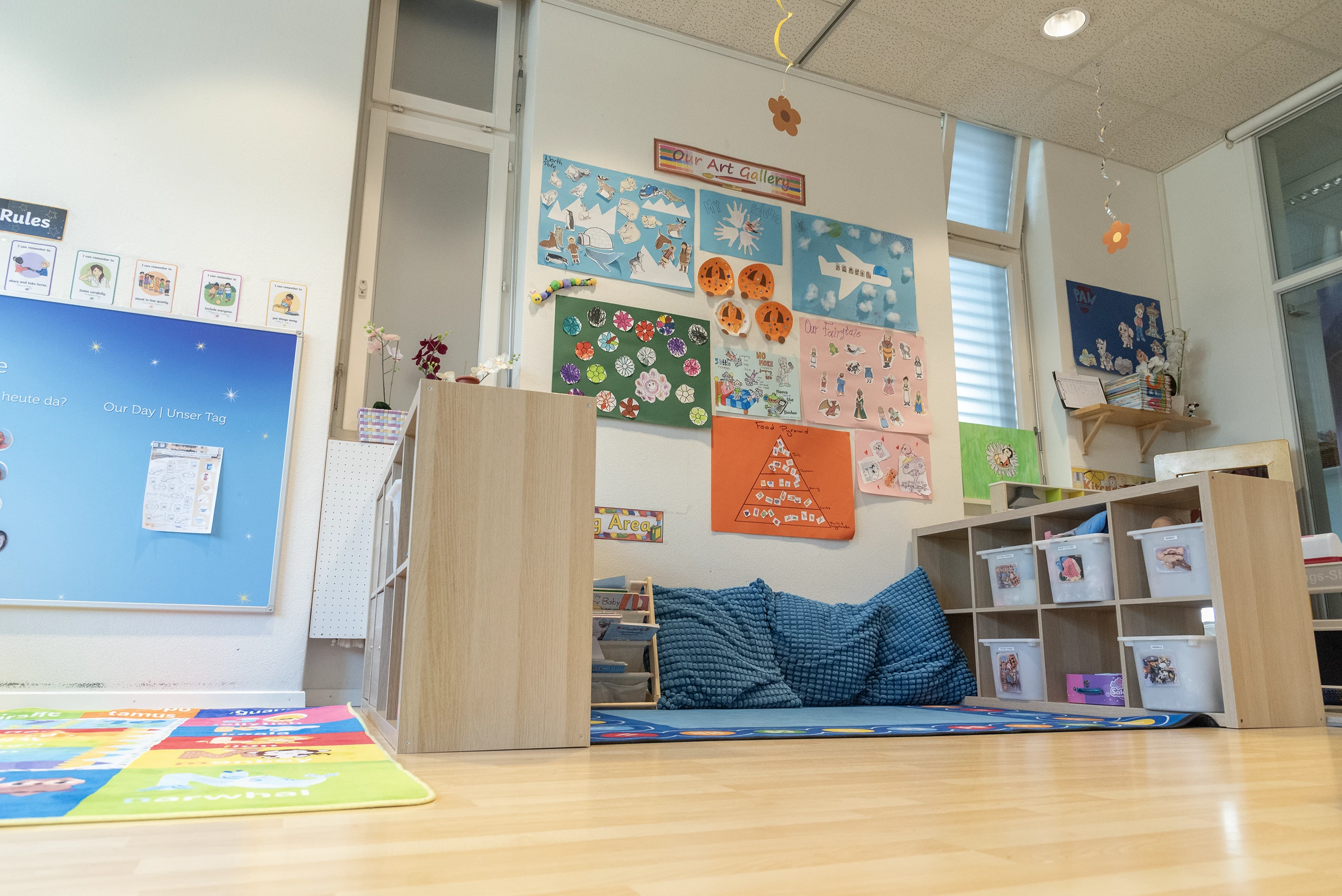
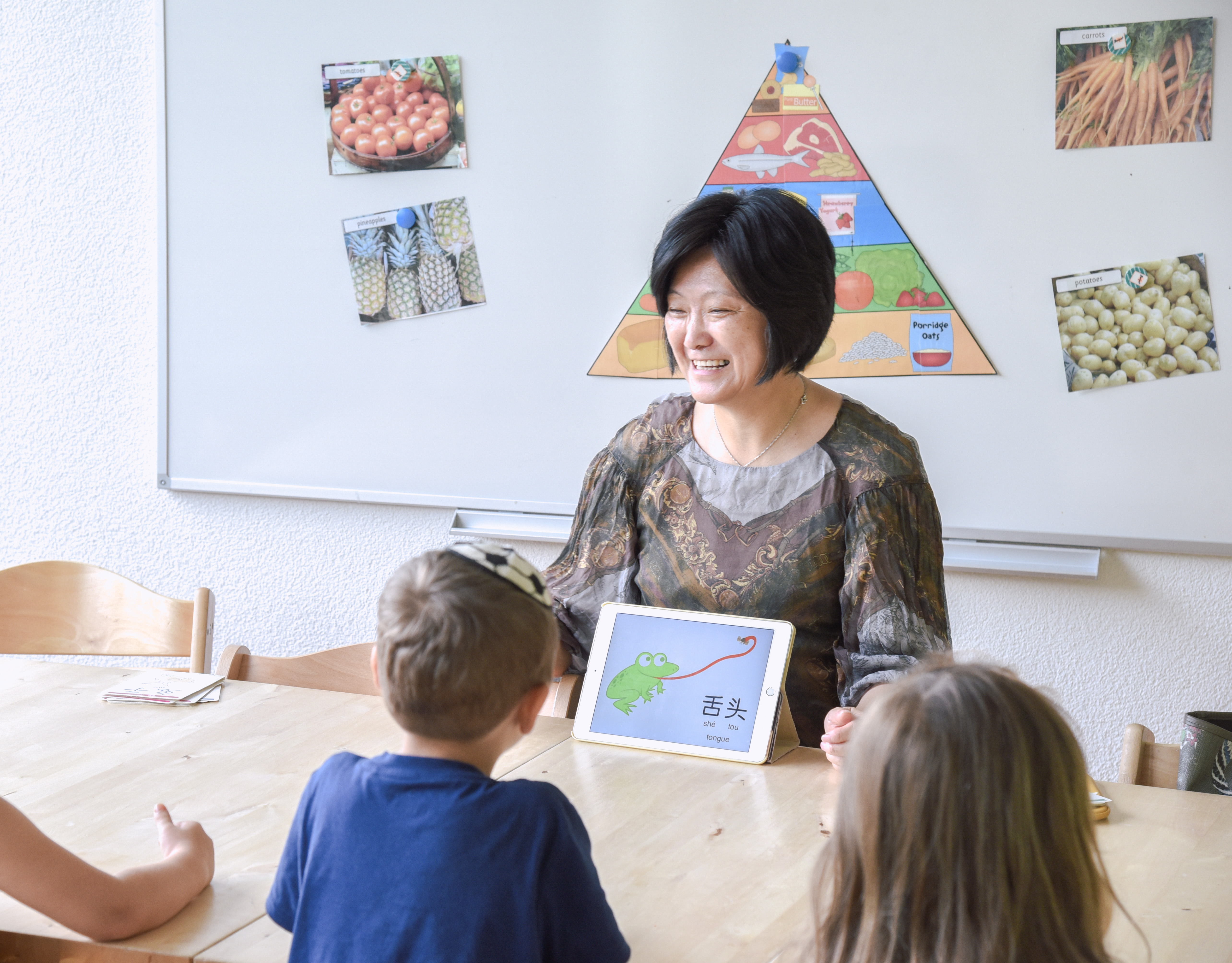
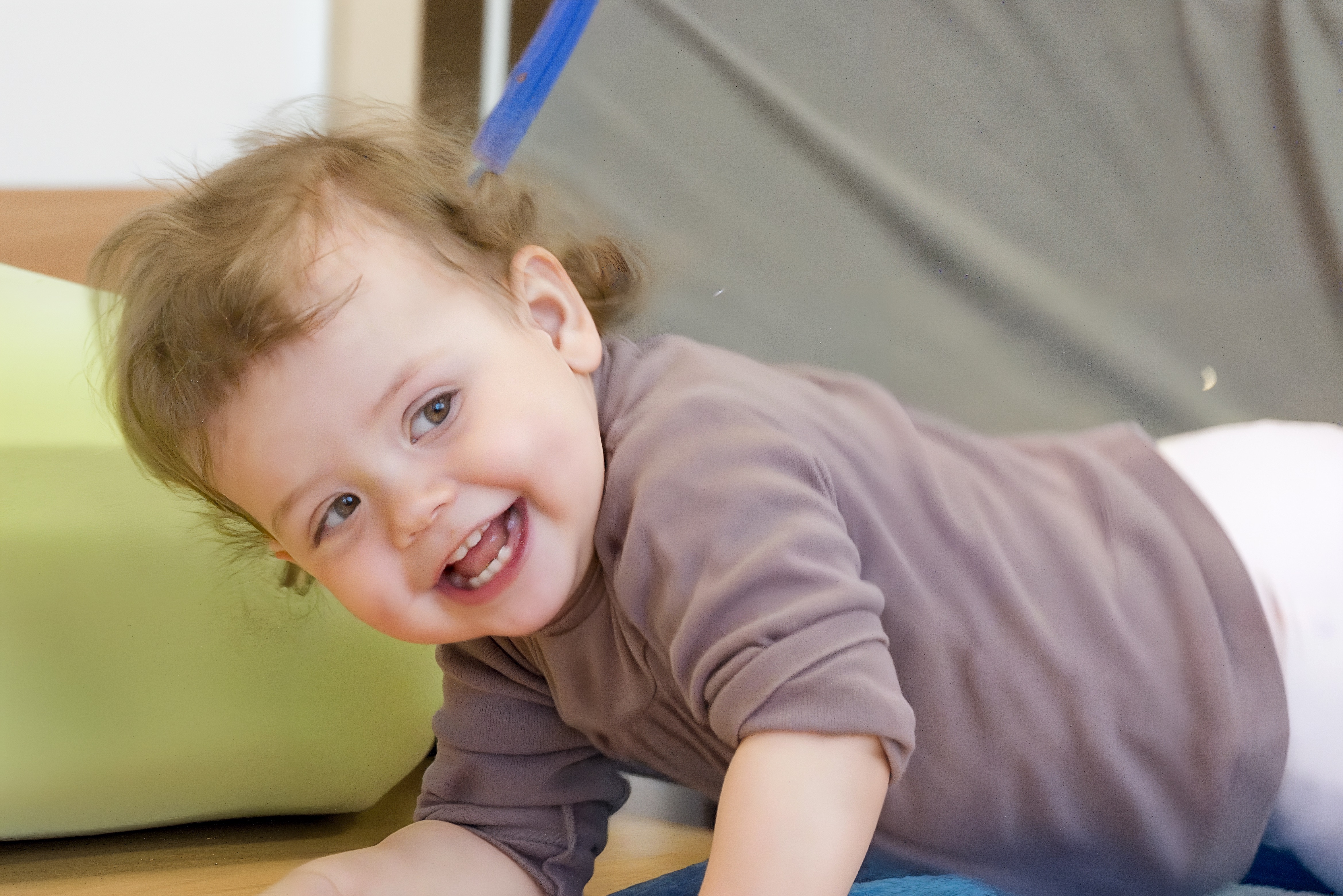
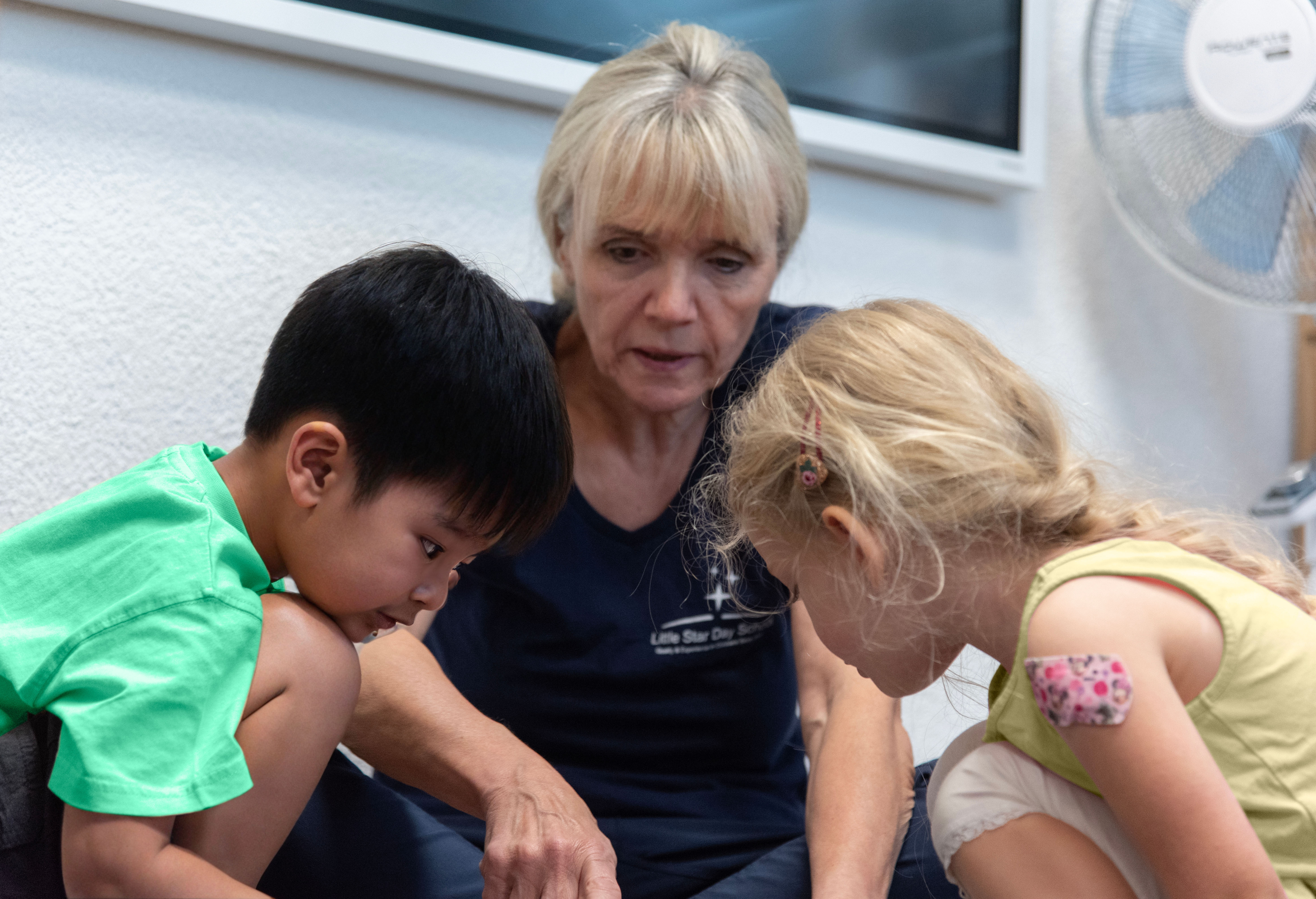
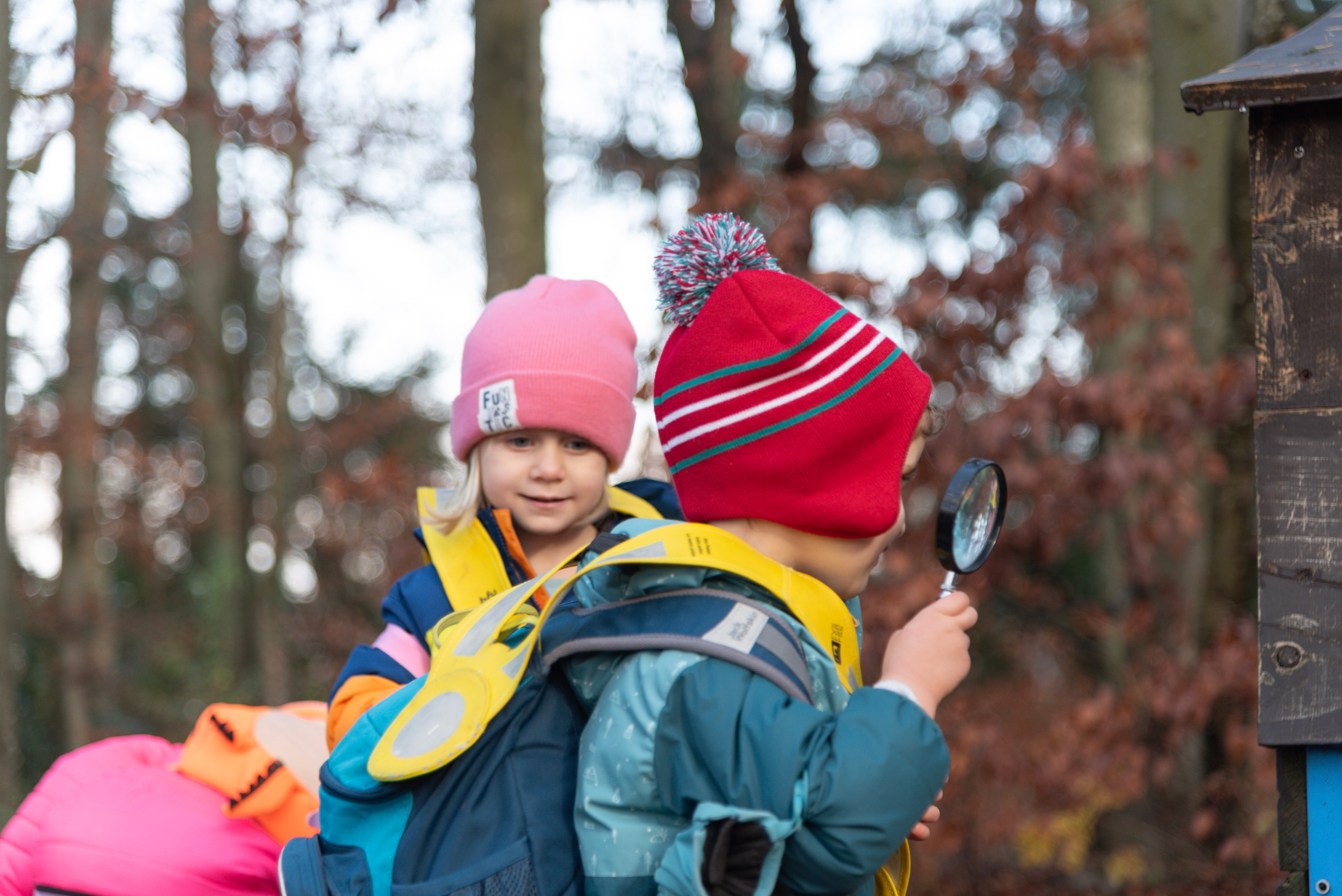
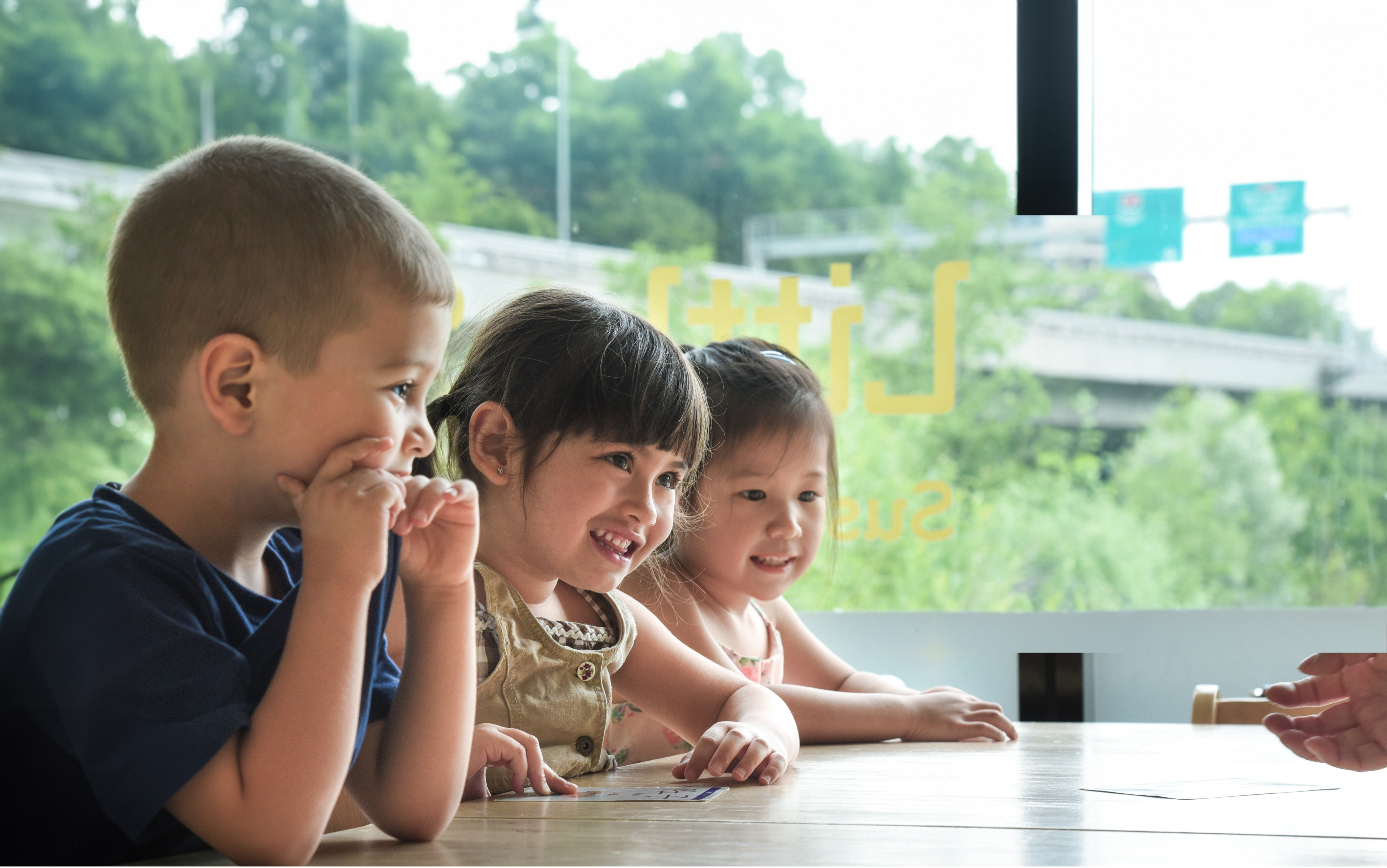
.avif)
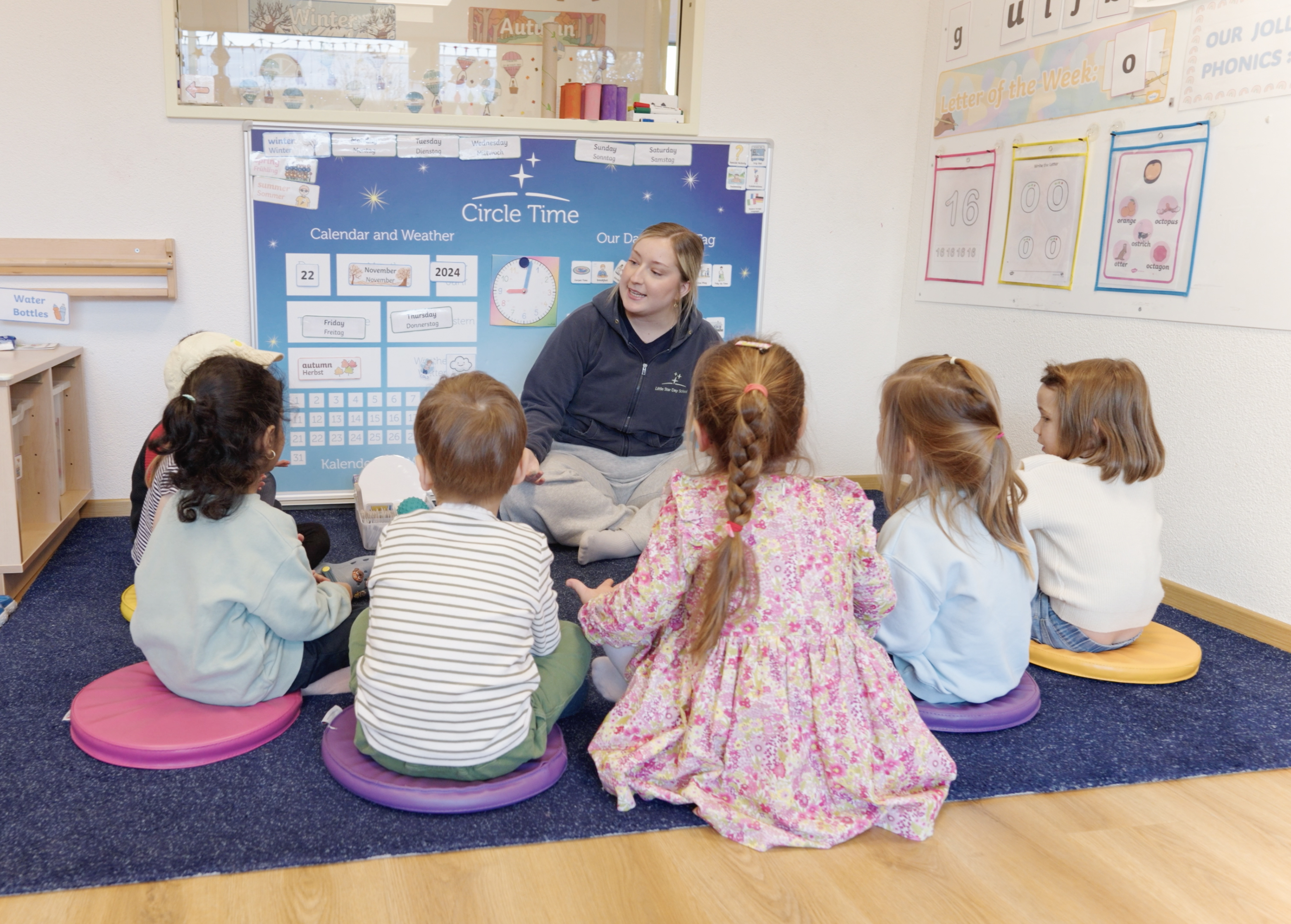
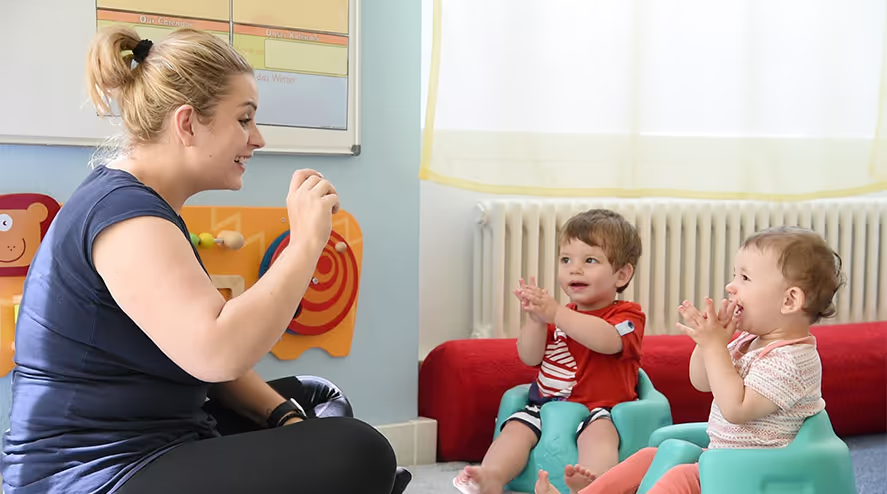
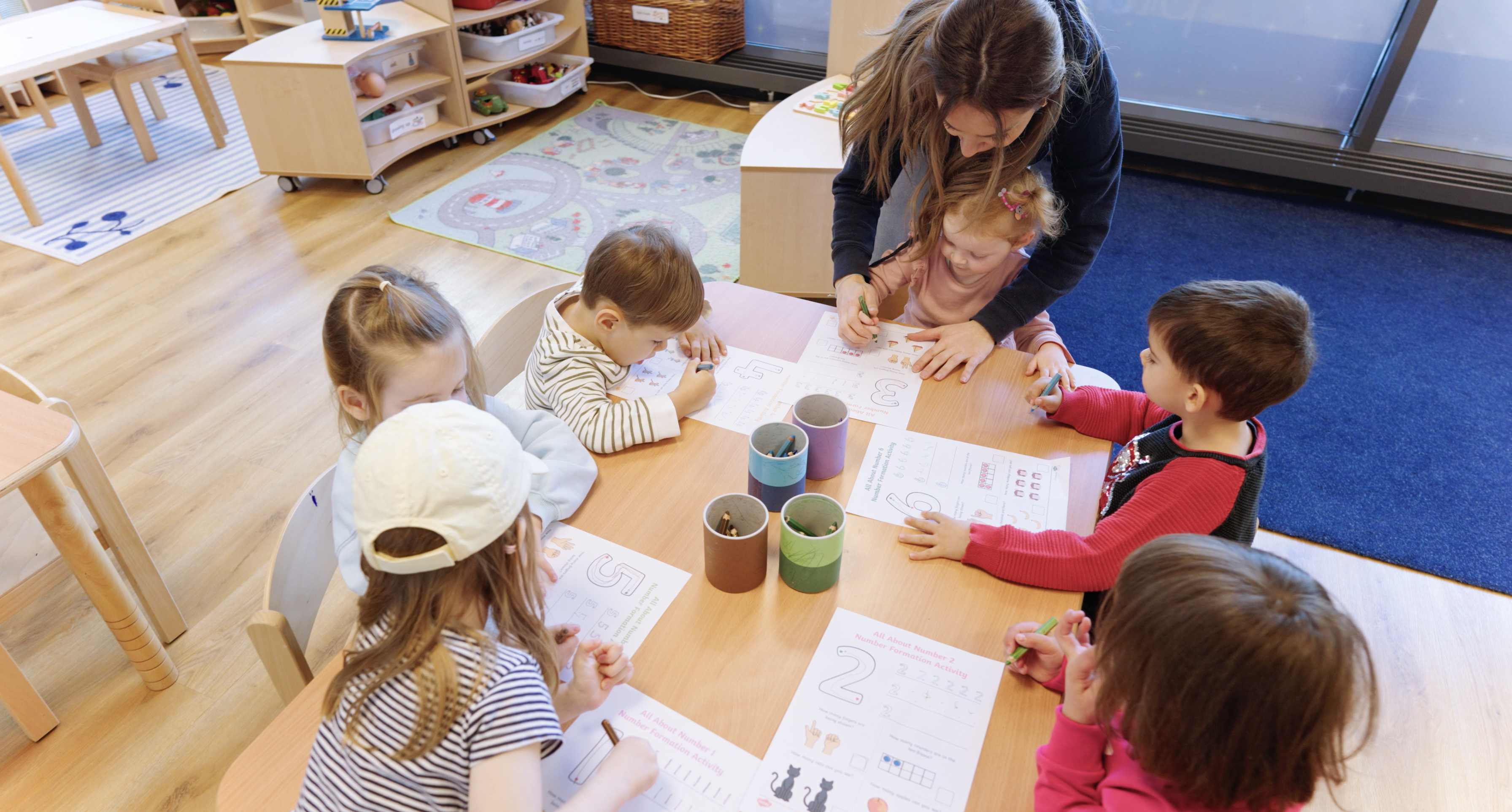
.avif)
Our Early Years Curriculum EYC® is not plucked from thin air, but is based on over 100 years of early childhood education research and practical experience. Whilst many nurseries follow a single educational approach, we have consciously chosen a different path: we combine the most valuable insights from five proven educational directions into a holistic, scientifically-founded concept.
This unique approach enables us to support each child individually – regardless of what type of learner they are, what cultural backgrounds they bring or at what developmental pace they are progressing. Our EYC® is not dogmatic, but evidence-based: we use the best from each approach and continuously adapt our concept to new scientific findings from brain research, language development and social psychology.
Our five scientific pillars are:
The Italian physician revolutionised pedagogy with the prepared environment and the principle of independence. From her we adopt age-appropriate room design (MyDay©) and material selection that invites children to independent exploration. Our educators offer "help towards self-help" – precisely when it's needed.
The Swiss developmental psychologist proved that children actively construct their knowledge. We consider his developmental stages in our multisensory approach. Through "The BIG Question" method, we let children experiment and find answers themselves rather than presenting ready-made solutions.
The Russian psychologist discovered the "zone of proximal development". Our educators as "personal coaches" recognise precisely where each child stands and what developmental step is next possible. We live language as a thinking tool in our bilingual daily life.
This Italian educational philosophy sees children as competent researchers with diverse forms of expression. Our development portfolio documents these "hundred languages" of each child. Spaces are consciously designed as "third educators" and invite wonder.
Instead of teaching isolated subjects, our MyWorld© activities link various learning areas: mathematics becomes experiential through music, language is reinforced through movement. This networked approach optimally prepares children for international curricula.
Since 2001, we have been the pioneers of bilingual early education in Switzerland. German and English are not taught as separate subjects with us, but experienced as natural communication tools in daily life. This immersive approach demonstrably promotes cognitive flexibility, problem-solving abilities and cultural competence. From first baby sign language to school readiness in both languages – we accompany each child individually on their bilingual journey.

Every age has special developmental needs and unique learning potential. Our Early Years Curriculum EYC® grows with the child – it recognises early the changing needs of each developmental phase and creates a learning environment that actively accompanies and supports this transformation.
What's unique is the seamless continuity between age groups. Whilst rooms, materials and activities adapt to growing abilities, the fundamental principles remain the same: learning through play, individual support and bilingual development. Our experienced educators know typical developmental progressions precisely and consciously create challenging but not overwhelming transitions between groups.
In the first months of life, your baby's brain develops faster than at any other life stage. Our specially developed Nappy Curriculum© optimally utilises this critical time and is based on proven approaches from Pikler and Montessori. In our lovingly designed "Nest", the youngest children receive important sensory stimulation through various materials, whilst consistent key workers ensure vital attachment building.
Now the world becomes really exciting! Toddlers are natural researchers who want to explore everything. During this phase, important social competencies such as sharing and playing together develop. Growing independence shows itself in dressing, eating and gradual toilet training. Creativity is promoted through painting, crafting and first musical experiences, whilst movement activities support motor development.
Pre-school marks the transitional phase on the way to school. During this time, children deepen their reading and writing skills in both languages, extend their mathematical understanding to numbers up to twenty and solve first addition problems. In multi-week projects, they learn to work independently, structure learning processes and contribute to a team. The conclusion is a personal portfolio that each child presents with pride.
Kindergarten brings the first structured learning processes. The first complete words and sentences are recognised and simple stories retold. In parallel, children learn about quantities up to ten as well as first arithmetic operations. Our research projects following the "BIG Question" principle are particularly exciting: children develop their own experiments and make nature observations. Our full-day kindergarten follows the Swiss Lehrplan 21 and the International Primary Curriculum (IPC).
Since we established standards as the first bilingual nursery in Switzerland in 2001, we rely on complete linguistic immersion in daily life. Thus every child intuitively learns German and English.
Every child is unique. Our development portfolio documents the personal learning journey, whilst small group sizes and experienced educators guarantee individual attention.
Our EYC® combines the best insights from over 100 years of early childhood education research. From Montessori to Reggio Emilia – we use proven methods and continuously develop them further.
Whether Zurich, Kilchberg or Zug – at all locations we guarantee the same high quality of care. All our schools offer the complete EYC® programme – from baby age to school entry.
Every child develops at their own pace and in their own way. Therefore, our experienced educators continuously observe your child's progress and document every important developmental step in a personal development portfolio. This systematic support enables us to provide targeted development and comprehensively inform you as parents about your child's learning journey. The portfolio collects regular observations, photos of special moments, artworks and documentation of learning progress, becoming a valuable memory.
At least twice a year, we invite you to detailed development discussions where we discuss your child's progress based on the portfolio and set new developmental goals together. This collaborative partnership ensures that your child receives optimal support. When they're ready for the next developmental step, we design the transition to the next age group gently and individually. At the end of their Little Star journey, you receive comprehensive documentation of school readiness that helps with school selection and gives the new school valuable insights.
.avif)
You have questions about our Early Years Curriculum EYC® or would like to know more about our care? Here you'll find answers to the most important questions parents ask us.
Yes, our EYC® combines the best of both worlds. Our full-day kindergarten follows both the Swiss Lehrplan 21 and the International Primary Curriculum (IPC). Children develop reading and writing skills in parallel in German and English, making them optimally equipped for all types of schools - from local primary schools to international schools.
All our educators have completed training in childcare or early childhood education. Additionally, they are continuously trained in our EYC® and regularly attend further education courses. Particularly important to us is continued education in the specific programmes such as Jolly Phonics, KonLab and Montessori pedagogy that shape our concept.
Inclusion is part of our philosophy. We welcome children with special needs and adapt our EYC® individually. Our educators work closely with you and, when needed, with external specialists to ensure your child receives optimal support. The small group sizes and our individual approach particularly benefit children with special needs.
Every child receives an individual development portfolio in which we continuously collect observations, learning progress, photos and artworks. At least twice a year, we conduct detailed development discussions with you where we discuss progress and set new goals together. Our multisensory approach enables us to track development in all areas – cognitive, social, emotional and motor.
We follow the scientifically proven immersion principle: at Little Star, each face is assigned a language. One group of our carers speaks exclusively German, the other group exclusively English. This way children immerse themselves in a natural "language bath" and encounter both languages quite naturally in daily care.
Activities and learning centres are conducted by both German and English-speaking educators, so content and specialist terms are conveyed in both languages. Additionally, children benefit from our international Little Star family: about half have German or English as their mother tongue and children thus learn from each other whilst playing. This natural immersion is complemented by structured programmes such as Jolly Phonics (English) and KonLab (German).
.avif)